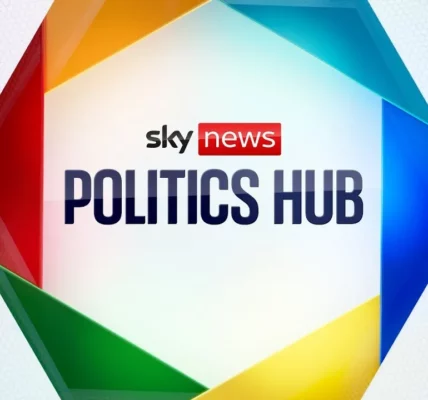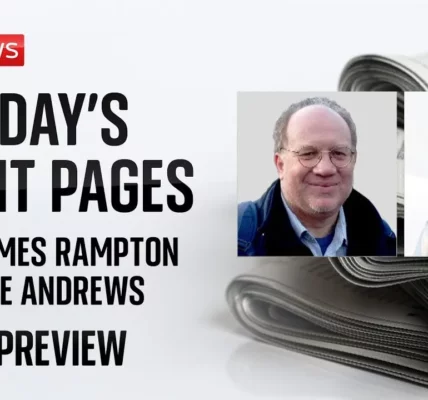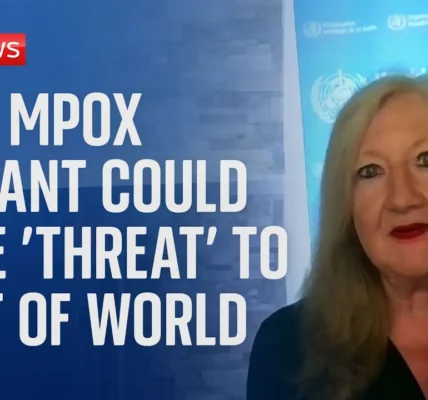Politics at Jack and Sam’s Daily Briefing: October 2nd Overview

Welcome to our comprehensive overview of British politics, where we delve into the latest developments from the Tory Party Conference in Birmingham and the escalating tensions in the Middle East. This article provides insights into key political figures, events, and the implications for UK foreign policy.
Introduction
Good morning and welcome to our detailed briefing on British politics for October 2nd. As we gather in Birmingham for the Tory Party Conference, the political landscape is overshadowed by dire events unfolding in the Middle East. The recent missile attacks on Israel have shifted the focus away from domestic political maneuvers and towards international implications. This article aims to unpack the discussions and developments at the conference, while also analyzing the significant geopolitical tensions that have arisen as a result of these events.
Middle East Tensions Take Center Stage
Last night, the situation escalated dramatically as Iranian missiles struck Israel, resulting in intense scrutiny of UK involvement in the unfolding crisis. With missile attacks reported at around 5:00 PM, many missiles were intercepted by Israel’s Iron Dome defense system, aided by US and UK support. This event underscored the urgent need for political leaders to address the situation.
Immediate Reactions to the Missile Attacks
- The Israeli government reported minimal casualties due to the effectiveness of its defense systems.
- Retaliation threats from Iran have heightened fears of a broader conflict.
- UK Defense Secretary John Healey confirmed military involvement in the region, drawing parallels to previous engagements.
Prime Minister’s Emergency Statement
In response to the crisis, Prime Minister K. Starmer delivered an emergency statement, affirming the UK’s support for Israel and the need for de-escalation. His remarks, however, contrasted with the aggressive stance of other political figures, illustrating a divide in the UK’s foreign policy approach.
The Tory Party Conference: A Leadership Showcase
As the Tory Party Conference reaches its final day, the focus on the leadership candidates is palpable. Each candidate is expected to make a significant impact with their speeches, aiming to sway party members amid the backdrop of international turmoil.
Leadership Candidates and Their Strategies
- Robert Jenrick: Advocating a strong military stance, he has expressed unwavering support for Israel, suggesting potential military backing.
- K. Starmer: Emphasizing a balanced approach, urging caution and diplomatic engagement in the Middle East.
- James Cleverly: Emerging as a contender, he has been seen as a unifying figure within the party.
- Tom Tugendhat: His speeches are anticipated to resonate with traditional Tory values, reinforcing party unity.
Political Atmosphere at the Conference
The ongoing events in the Middle East have cast a shadow over the conference, with attendees frequently checking their phones for updates. The thinning crowd reflects a shift in priority, as international stability takes precedence over internal party matters.
Implications of UK Foreign Policy
The UK’s role in the Middle East is increasingly scrutinized, especially concerning military involvement. The government’s commitment to support Israel raises questions about the long-term strategy for the region.
Historical Context and Future Considerations
As tensions rise, experts are drawing parallels to past conflicts, noting that limited military incursions can often escalate into protracted engagements. The implications for UK foreign policy are profound, as decisions made now will influence Britain’s global standing.
Public and Political Reactions
Public sentiment is divided, with many expressing concern over the UK’s military commitments abroad. The government faces pressure to clarify its position and ensure that diplomatic avenues are prioritized alongside military readiness.
K. Starmer’s Trip to Brussels
In a significant diplomatic move, K. Starmer is scheduled to visit Brussels to discuss relations with the EU. This visit represents a critical moment for the UK as it seeks to reset its relationship post-Brexit.
Objectives of the Brussels Meeting
The agenda will likely include discussions on:
- A closer relationship with the EU, potentially addressing trade and security.
- Negotiating parameters for future agreements, particularly regarding Northern Ireland.
- Exploring opportunities for youth mobility agreements.
Challenges Ahead
Despite optimistic tones, challenges remain. The UK government faces internal divisions over immigration and trade policies, complicating negotiations with the EU. Both sides will need to navigate these complexities to achieve a mutually beneficial outcome.
Conclusion
In conclusion, the intertwining of British politics with international developments has created a complex political landscape. The Tory Party Conference serves as a crucial moment for leadership candidates to establish their positions amid escalating tensions in the Middle East. The decisions made in the coming days will not only shape the future of the party but also impact the UK’s role on the global stage. We encourage our readers to stay informed and engaged with these developments, as they will undoubtedly influence both domestic and international policy moving forward.
For more insights on UK politics and international relations, visit our related articles on British Foreign Policy and Tory Party Leadership Dynamics.
“`




